
During the period of 1660-1737, theatre in England
was distinctively understood as an "actors' theatre" before anything else.
Audience members developed fascinations with certain actors who consequently
gained much notoriety, akin to our modern day notion of "Superstardom"
in Hollywood. These actors were held to high standards and had to abide
by a code of conduct set up by the Theatre Royal. One could not skip rehearsal,
refuse a part, or use costumes without returning them. [10]
"At the Restoration, when theatre in London was a court toy managed
by courtiers, the actors and actresses were public playthings, bearing
the stamp of royal approval at a time when it was fashionable to emulate
the king." [11] The actual plays and particular
characters were relegated to a subordinate position to the actors' performances.
People came to see actors, not characters.
Theatre-goers frequented the playhouses to see their favorite performers
and they marveled at the actors' humor, sex appeal, and dramatic flair.
|
Nell Gwynne was one of the great actresses of her day and a sex symbol as well.. Gwynne and Moll Davis were two examples of women who walked a fine line between acting and prositution. Charles II found women such as these ideal for becoming his mistresses. [12] This controversial act brought about much criticism and mockery particularly from William Wycherley and John Dryden who ridiculed such behavior in their literary works. Nell Gwynne, however, did not let noblemen get the better of her. Gifted with talent and drive, she established herself as a star of the stage in the mid 1600's. Her popularity grew and she was admired by men and women alike. One theatre critic commented that "nature seemed to have qualified Nell Gwynne for the stage." [13] |
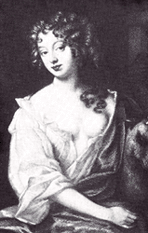
|
|
Anne Bracegridle was another well known actress of the time. She established herself as a principle actress in the respected company of Christopher Rich. She was quite competetive with the others in her company including fellow actress Anne Oldfield. Bracegirdle, in order to gain herself more esteem, took on the role of being the "virgin actress" of English theatre. Whether or not her facade genuine, Bracegirdle's "virtue" brought about great success. [14] |
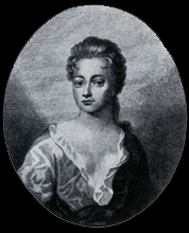 |
|
Thomas Betterton was a classic actor-manager, and conceivably the most famous actor on the early eighteenth-century English stage. He often played against Elizabeth Barry, and their onstage dynamic became a quick audience favorite. Betterton was a prototypical actor of this time, and embodied many of the idiosyncratic eighteenth century ideals for this profession. He was the head of a theatrical family, married to actress Mary, n�e Sanderson, and father to Anne Bracegirdle. A predominantly tragic actor, he was widely known for his performances in revivals of Elizabethan tragic drama. Betterton was a star of D'avenant's company, but also received income by other means. When times were bad, he sometimes went on salary for benefit performances. Toward the end of his life, he was allowed an extra �50 a year for training young actors. |
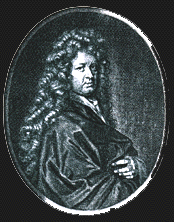 |
|
Elizabeth Barry was among the most prestigious tragic actresses of the period. She was known to be a jealous actress, and there are several records of hostile incidents between her and other well-known actresses. Many playwrights wrote their tragic heroines with her in mind, such as Nathaniel Lee who "may have been designing emotional speeches for the special histrionic style of the actress Elizabeth Barry." [15] Barry joined the Duke's Company in the late 1670's, when her partnership with Thomas Betterton first began. The pair was an immediate success, and Barry was extolled for her emotional capacity as an actress above all things. She was not beautiful, but rather extremely poised. |
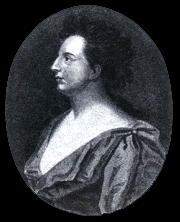 |
| Colley Cibber came to the forefront of theatre culture as early as 1696, writing, producing, and acting in Love's Last Shift. He is often considered the father of sentimental comedy, particularly in his production of Woman's Wit. However, his popularity for farce grew throughout much of the following decade as he wrote Love Makes a Man in 1700; She Would, and She Would Not in 1702; and many more comedies until his final comedy, The Provoked Husband in 1728. Although many of his plays were comedic in nature, they were also sometimes "long, dull, and very complex in plot"[16]. Nonetheless, they remained popular in London theatre culture and greatly contributed to the variety of performance that was available to theatre-goers. | 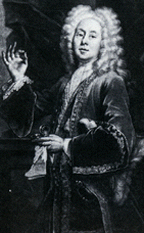 |
|
Charles Macklin began his acting career in London during the mid-1720's, creating a legacy that is still spoken of today. "Between his teaching, his own plays, and the force of his personality, the rough-edged Irishman influenced British theater from the days of the ballad opera to the dawn of melodrama"[17]. Long after retiring, Macklin continued to thrive in theater culture, occasionally performing in his own plays until his failing memory forced him to stop in 1789. Both He and Colley Cibber delighted audiences by starring in many famous dramatic works, particularly that of William Shakespeare. Perhaps Macklin's most noteworthy role was the character of Shylock in Shakespeare's A Merchant of Venice. To prepare for the part, Macklin went to coffeehouses to study the public behavior of Jews. Many other famous roles such as in A Will and No Will and A Bone for the Lawyers came along later in the 18th century. Charles Macklin set new standards as a performer and has come to be known as one of the greatest actors of 18th century British Theatre. |
 |
